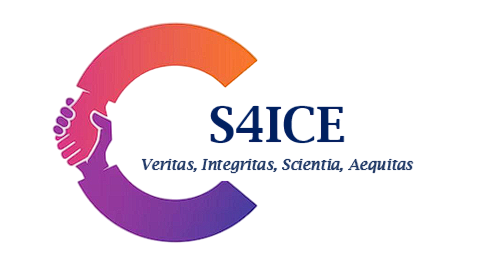Worldwide, 33% of businesses are run by women. However, this proportion varies according to region: 23% in the Middle East and North Africa, 18% in South Asia, 29% in sub-Saharan Africa and 50% in Latin America and the Caribbean (World Bank, 2020). In developing countries, in particular, women tend to set up very small or micro-enterprises, which often have limited growth potential.
The fourth industrial revolution, with its potential for technological innovation, could transform this landscape by enhancing the growth capabilities of these women’s micro-enterprises through Artificial Intelligence (AI). AI has the potential to modernise business practices and improve the efficiency of small businesses. However, its integration also raises issues of accessibility, equity and risk for women entrepreneurs. To fully understand the impact of AI on these businesses, it is pertinent to explore both the benefits and challenges it presents.
AI as a Tool for Modernising and Improving Micro-Businesses
AI offers unprecedented opportunities for very small women traders in developing countries. Thanks to AI, these women traders can automate repetitive tasks such as stock management, accounting and sales. For example, AI-based mobile applications can track daily transactions, analyse sales trends and predict stock requirements, enabling retailers to make informed decisions and optimise operations. These tools help to improve operational efficiency and reduce costs, which is important for micro-businesses often operating with very low profit margins.
In economic terms, AI can also help women traders to access new markets and manage their business. Online trading platforms, supported by AI algorithms, enable these micro-enterprises to sell their products to a wider customer base, beyond their neighbourhood or village. This opens up new opportunities for growth and can significantly increase their revenues. In addition, AI can be used to analyse consumer preferences and adapt product offerings, accordingly, improving the competitiveness of women-led micro-enterprises in the marketplace.
From a social perspective, AI has the potential to empower women as entrepreneurs. By using AI tools to manage their businesses, women can gain financial independence and self-confidence. Access to online education and training resources, often supported by AI, also enables these women traders to improve their entrepreneurial skills, which is essential for overcoming the challenges of running micro-businesses in often hostile environments.
The Risks and Challenges of AI for women-led micro-enterprises
Despite these benefits, the adoption of AI in the management of women-led micro-enterprises in developing countries is not without challenges. The first challenge is accessibility. In many developing countries, access to technology in general remains limited by a lack of technological and energy infrastructure, but also by cultural, educational, economic and geographical factors. Women traders, particularly in rural areas, may not have access to the necessary tools or the digital skills to use AI effectively. This inequality of access risks widening the gap between businesses that can benefit from AI and those that cannot, creating a new form of digital exclusion.
The second challenge relates to the costs of integrating AI into micro-businesses. Although AI can reduce operational costs in the long term, the initial investment in AI technologies can be prohibitive for many very small businesses. This includes not only the cost of the necessary software and hardware, but also the time and resources required to train in their use. Without adequate financial and technical support, the adoption of AI could remain out of reach for those who really need it most.
Finally, AI raises ethical and security issues. The use of AI in micro-businesses involves the collection and analysis of sensitive personal and commercial data. Very small businesses run by women may be exposed to security risks, including breaches of privacy or cyber-attacks. In addition, there is a risk that AI algorithms will perpetuate or exacerbate existing biases, which could put women at a disadvantage in their business activities.
Towards Inclusive and Secure Adoption of AI
For AI to become a real engine of growth for women-led very small businesses in developing countries, it is important that inclusive and secure strategies are put in place. Governments, non-governmental organisations and international institutions must work together to ensure that these technologies are accessible and adapted to the specific needs of very small businesses run by women.
Organise capacity building and awareness programmes to enable women entrepreneurs to understand and use AI effectively. These programmes should be designed with local realities in mind, with a focus on digital literacy and practical training. In addition, funding initiatives, such as grants or low-interest loans, could be put in place to help women traders cover the initial costs of integrating AI into their businesses.
It is also important to develop robust regulatory frameworks and data protection policies to protect retailers from the risks associated with the use of AI. This includes setting security standards for AI applications and platforms used in commerce, as well as policies to ensure algorithms are fair and transparent.
Conclusion
The integration of AI in micro-enterprises run by women in developing countries offers interesting prospects for improving their efficiency, competitiveness and economic autonomy. However, for these benefits to be fully realised, the challenges of accessibility, cost and security need to be overcome. With the right policies and initiatives. AI can become a powerful tool to support the development of women-led micro-enterprises, helping to reduce poverty and gender-based economic inequalities in developing countries.
Policy recommendations
- Set up infrastructure programmes to improve access to the Internet and digital technologies in underserved regions.
- Developing data protection policies and security standards specific to AI applications used by micro-businesses.
- Working in synergy with civil society organisations and NGOs to democratise AI.
- Increase access to finance for women-led micro-enterprises through grants and low or zero interest loans to stimulate the adoption of AI; accompanied by appropriate training programmes.
- Organise awareness-raising campaigns, capacity-building seminars and professional training for women micro-business managers and support the creation of incubators to equip them with the skills they need to use AI to safely manage the day-to-day tasks in their organisation (stock management, accounting and sales management).
Key-words: Artificial Intelligence, Women-led Microenterprises, Developing Countries, Digital Inclusion, Economic Empowerment, Innovation, Entrepreneurship.
By Georges Ngnouwal and Blaise Ondoua Beyene
S4ICE Research Associates




